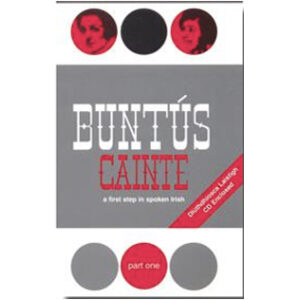Fáilte (Welcome) › Forums › General Discussion (Irish and English) › Lá fhéile Pádraig/Phádraig–cad é fearr?
- This topic has 8 replies, 1 voice, and was last updated 10 years, 1 month ago by
Héilics Órbhuí.
-
AuthorPosts
-
March 17, 2014 at 2:38 pm #36707
Duncan
ParticipantTá sé an 17ú Márta, mar sin Lá fhéile Pádraig sona daoibh! (I almost always see this greeting with the hard P)
Actually, this is a question about genitives without articles; I realize that it may just be a matter of dialect, and I’m learning using Caighdeán. I understand that, in general, genitives without the article are not lenited in either gender; but in a series such as in the greeting the nouns are lenited but the article is left out until the final word, making fhéile and Pádraig both right. But on the other hand I’ve always seen “Patrick’s house” as “teach Phádraig” whereas I would have expected “teach Pádraig,” and I’ve been given the example of “a man’s house” as “teach fir” (not teach fhir)–as well. 17ú Márta is another example. This is a minor point, of course, but if someone would clear up the confusion I’d appreciate it.
I’m sure you can tell that I’m relatively new to the language. I’m through 11 of the 12 units in Rosetta Stone’s three levels, and I’m using Basic and Intermediate Irish books by Stenson for grammar. Thanks for your input.
March 18, 2014 at 12:44 pm #45095Onuvanja
ParticipantIn general, you would always lenite a proper name in a genitive structure, e.g. “teach Phádraig” (“Patrick’s house”). However, if my memory serves me right, this rule is relatively recent, which is why in the case of some set phrases, such as the names of feast days, there is no lenition, hence “Lá fhéile Pádraig”, “Lá fhéile Bríde” etc.
March 18, 2014 at 1:27 pm #45096Hugo
ParticipantNames of persons are lenited in the genitive – ‘ teach Phádraig’, ‘áthair Mháire’. (On top of that, they’re declined and may change slightly in the genitive: ‘Seán’> ‘mac Sheáin’; ‘Bríd’> ‘Coláiste Bhríde’, but ‘Pádraig’ doesn’t. It all depends on which declension they belong to.) However, in an exception to the rule, there’s no lenition after ”féile’, ‘naomh’ and some other words, hence ‘Lá Fhéile Pádraig’.
‘(‘teach fir’ – a man’s house; ‘teach an fhir’ – the man’s house. Lenition only occurs if the definite article is there).
Nancy deals with all this at some point no doubt.
Ooops. Crossed with Onuvanja.
March 18, 2014 at 2:58 pm #45097Onuvanja
ParticipantNo problem, Hugo! 🙂 Your answer was probably more complete. As you point out, when in genitive, personal names traditionally follow the rules of the declension they belong to (Seán -> Sheáin, e.g. like “bád -> an bháid” and Bríd -> Bhríde, e.g. like “maoin -> na maoine”). Still, in “Learning Irish”, O’Siadhail uses “seomra Bhríd” (not “seomra Bhríde”) and “seomra Dhiarmaid” (not “seomra Dhiarmada”), so it would seem that in spoken Irish there is some uncertainty in declining personal names (except for the “Seán”-type names). There was a thread on this topic on the forum a few months ago.
March 18, 2014 at 4:00 pm #45098Duncan
ParticipantThanks, everyone. This pretty much clears up what I was wondering about. I’m just now getting used to the forum, so hope I’m using proper etiquette, etc. It’s been a great experience, and I wish I had joined earlier.
Go raibh maith agaibh, mo chairde!
Duncan
March 18, 2014 at 4:33 pm #45100Onuvanja
ParticipantFáilte isteach, Duncan! I’m not aware of any particular etiquette, except for keeping it “múinte” and “bainteach leis an nGaeilge” (see forum home page). 🙂
March 18, 2014 at 4:38 pm #45101Héilics Órbhuí
ParticipantNames of persons are lenited in the genitive – ’ teach Phádraig’, ‘áthair Mháire’. (On top of that, they’re declined and may change slightly in the genitive: ‘Seán’> ‘mac Sheáin’; ‘Bríd’> ‘Coláiste Bhríde’, but ‘Pádraig’ doesn’t.
At first, I totally misunderstood this. I thought you meant that Pádraig doesn’t ever lenite in the genitive.
Just to make sure no one else made the same misinterpretation I did, you’re saying that Pádraig doesn’t change form in the genitive but it does lenite (unless after certain words, like féile).
March 19, 2014 at 3:19 pm #45105Hugo
Participant@ Onuvanja, you’re dead right: ‘fear Bhríd’ rather than ‘fear Bhríde’. ‘Coláiste Bhríde’ was what I had first, then I changed it to ‘fear Bhríde’ but never thought to make it ‘Bhríd’. Does this mean that nowadays ‘Bhríde’ is used only to refer to the saint?
What thread are you referring to?@Héilics, re lenition of ‘Pádraig’, apologies for any perceived ambiguity though I thought “teach Phádraig” in the first line of my post might be a hint 🙂 . I’d ‘ve thought “Pádraig doesn’t” clearly refers back to “may change”, all separated in parentheses from the part about lenition. So yes, ‘Padraig’ is lenited in the genitive, but not after “féile” etc. Anyway, I’m pretty sure your knowledge of the grammar is at the very least equal to mine 🙂 .
March 19, 2014 at 4:11 pm #45106Héilics Órbhuí
ParticipantYeah it was my misreading entirely, I just wanted to make sure no one else made the same mistake I did. I ignored the parenthesis somehow 🙂
I’ve realized I shouldn’t do this while at work, because I read posts very quickly and sometimes miss stuff or misread stuff. Your post was without fault, I just suck at paying attention 😛
-
AuthorPosts
- You must be logged in to reply to this topic.
